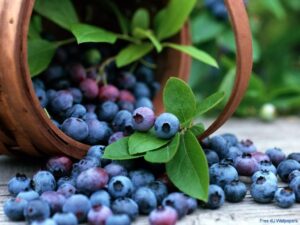 Millions of people worldwide would like to have stronger, longer, more brilliant looking hair and nails.
Millions of people worldwide would like to have stronger, longer, more brilliant looking hair and nails.
There are very few nutritional supplements supported by research studies showing they help hair growth and nail strength, but MSM for hair growth is one of them.
According to the book “The Miracle of MSM” by doctors Jacob and Lawrence, “MSM is one-third sulfur and sulfur has the reputation for being nature’s ‘beauty mineral’ for keeping the hair healthy and the complexion youthful.”
MSM sulfur (methyl-sulphonyl-methane) is a white, odorless, water-soluble element found in nature and in foods such as milk, fresh fruits, vegetables, seafood and meat. It is especially high in eggs, onions, garlic, asparagus and broccoli. Sulfur has a long tradition of healing and throughout history, doctors have prescribed mineral hot springs rich in sulfur to their ill patients. Food processing methods such as heating, washing and freezing, all deplete MSM in foods, making daily replenishment beneficial.
While MSM is best known for its arthritis and pain relieving benefits, it also helps to form keratin, which is the main protein found in hair, nails and skin. The ‘beauty mineral’ study was published in Total Health Magazine and was named: “MSM – Increased Hair Growth, Nail Length and Nail Thickness”. It was conducted by Ronald M. Lawrence, M.D.
Dr. Lawrence says: “We completed a placebo-controlled trial over the course of six weeks showing that 100 percent of the subjects on MSM had increased hair growth, compared to the group on placebo. 30 percent of the subjects on MSM showed improvement in hair brilliance, while none of the subjects on placebo showed such an improvement.”
The hair trial involved a total of 21 patients; 16 women and 5 men. Data was collected by certified cosmetologists under the doctor’s direction. The trial measurements included hair length, brilliance, and diameter of the individual hair shafts using industry standard measurement scales. All subjects that supplemented with MSM were impressed with the changes in the health and appearance of their hair. The cosmetologists could literally see which participants had taken MSM for hair growth by the appearance of their hair alone after six weeks of use.
A second placebo-controlled trial, conducted simultaneously, showed that 50 percent of the subjects on MSM showed increased their nail length, nail strength, and nail thickness compared to the group on placebo. Dr. Lawrence says: ”Based on the results of the two trials, we concluded that oral supplementation with MSM is a valuable addition to hair and nail growth. Hair and nail health was significantly improved in a short term of six weeks.”
One example of a natural remedy that contains all the benefits of MSM is Joints and More from Nutrition Breakthroughs. Joints and More is made from “organic” sulfur (meaning coming from living things) and is a 99% pure, simple molecule, indistinguishable from a molecule of MSM found in nature.
Stanley Jacob, M.D. the co-discoverer and ‘Father of MSM’ says: “MSM is a surprising supplement. When you start taking it, you may notice a number of good things happening in your life in addition to natural pain relief, natural joint relief, and allergy relief – such as more energy, cosmetic benefits such as softer skin, thicker hair and stronger nails; as well as decreased scar tissue and relief of constipation.”
For more information, visit the Joints and More web page.
Yes it can. The ‘beauty mineral’ study was published in Total Health Magazine and was named: “MSM – Increased Hair Growth, Nail Length and Nail Thickness”. It was conducted by Ronald M. Lawrence, M.D. At the end of six weeks of use, the cosmetologists could literally see which participants had taken MSM for hair growth by the appearance of their hair alone.
Stanley M. Jacob, M.D. says “It’s best to take MSM during or after meals. Over the years, thousands of patients have experienced healing benefits by taking 2,000 to 8,000 milligrams of MSM a day.” (This would be 2 to 8 capsules containing 1,000 mg. each). Start slowly by taking 1 capsule per day and increase as your tolerance allows. If you overdo it, you may develop stomach discomfort or more frequent, looser stools. Just cut back if this happens. Avoid taking MSM in the evening as it can increase one’s energy.



